
BlockFi could be a good choice if you’re looking to trade your crypto without complicated fees and are interested in a crypto rewards credit card.
BlockFi is based in Jersey City, New Jersey, and was founded in 2017. BlockFi has gained attention for its high-yield crypto interest accounts, from customers as well as from the Securities and Exchange Commission. It’s also had complications with its lending product, though that may not be an issue for most everyday investors who are just buying and holding for long-term value growth.
The company recently settled with the SEC after it was charged with failing to register its retail crypto lending product, among other issues. BlockFi agreed to pay $50 million in fines to the SEC and another $50 million to 32 states, the SEC said in February. The settlement also required BlockFi to stop offering BlockFi Interest Accounts to U.S.-based users.
We reached out to BlockFi for comment on the SEC case, and the company said in a statement it is working on bringing its product in line with regulations and registering with the SEC under the appropriate statutes, after which it aims to rerelease its crypto interest-earning product to U.S. customers.
“From the day we started BlockFi, we have always known that strong engagement with regulators would be critical for the adoption of financial services powered by cryptocurrencies,” BlockFi CEO and founder Zac Prince said in the provided statement. “We intend for BlockFi Yield to be a new, SEC-registered crypto interest-bearing security, which will allow clients to earn interest on their crypto assets.”
Despite the pending issues with its lending and crypto interest accounts, BlockFi offers a relatively simple crypto trading experience, especially with regard to the way it folds its trading fees into the overall crypto prices. Combine that with its BlockFi Rewards Visa Signature Credit Card, and it could be an interesting option for crypto investors.
Pros and Cons of BlockFi
Pros
-
No trading fees
-
Instant trade execution
-
Rewards credit card
BlockFi At a Glance
- Fewer than 20 cryptocurrencies available
- No trading fees, but there are withdrawal fees
- Ability to borrow using crypto as collateral
- Keep coins in BlockFi’s custodial wallet or move them into your own wallet
- Minimum trade amount of $20
- Apply for a rewards credit card
Cryptocurrencies Available on BlockFi
BlockFi doesn’t offer many cryptocurrencies, though it does have some of the most popular ones, including:
- Bitcoin (BTC)
- Ethereum (ETH)
- Litecoin (LTC)
- Bitcoin Cash (BCH)
- Pax Gold (PAXG)
- Uniswap (UNI)
- DAI (DAI)
- ChainLink (LINK)
- Basic Attention Token (BAT)
- Algorand (ALGO)
- U.S. Dollar Coin (USDC)
- Tether (USDT)
BlockFi Fees
BlockFi doesn’t charge trading fees. Instead, the cost of spread, or the difference between what it costs and what you pay for it, is baked into the listed price, and you might find cryptos for less on other exchanges. The prices at which you can trade might be different than the market price you see listed, so take note of the actual price you’re exchanging at, rather than the list price. This will help with your record-keeping and help you stay aware of your transactions.
Withdrawal fees
There is no fee for a withdrawal to a bank account via ACH transfer, although you will see a $20 fee for domestic wire transfers.
If you decide to withdraw crypto to an outside wallet, you will pay a withdrawal fee based on the cryptocurrency involved, and you might be subject to a minimum and a withdrawal limit. While this won’t affect many everyday investors, for example, you can only withdraw up to 100 BTC in any seven-day period.
Some assets allow for one free withdrawal per calendar month on BlockFi, including:
Other assets, like ETH, LINK, PAXG, UNI, and BAT don’t come with any free withdrawal option, so you will always pay the fee to cash out.
Withdrawal fees are charged in the associated cryptocurrency. So if you withdraw ETH, you’ll pay a fee of 0.015 ETH. Fees and limits might change in the future, however, so check the terms before you move assets from BlockFi to your own wallet.
BlockFi Security
BlockFi operates a custodial wallet. When you send U.S. dollars to BlockFi, it’s converted to the same amount as represented by a U.S.-dollar linked stablecoin. Your stablecoin is actually what you’re exchanging when you buy other cryptos with your BlockFi account.
Your assets on the platform are actually held by a regulated custodian, including Gemini, which is a BlockFi partner. BlockFi touts its Gemini partnerships as an example of how its coordination with other industry-leading crypto companies gives users greater protection and security. BlockFi also offers security measures, such as letting you set up your account to only withdraw to approved wallet addresses. This reduces the chances that someone hacking your account can withdraw from your wallet to a non-whitelisted address. Additionally, BlockFi offers two-factor authentication.
Your money isn’t held in cash deposit accounts; it’s exchanged for stablecoins so it’s not actually held as cash. Therefore you won’t have access to Federal Deposit Insurance Corporation (FDIC) or Securities Investor Protection Corporation (SIPC) insurance. The FDIC is a government agency that insures deposits and supervises financial institutions for consumer protection, with the goal of maintaining public trust in and stability of the U.S. financial system. The SIPC is a nonprofit that aims to restore investors’ securities and cash when a brokerage firm fails.
Additional Details
Rewards Credit Card
BlockFi users can apply for the BlockFi Rewards Visa Signature Credit Card, which offers 1.5% cash back in crypto. You can also get cash back offers on eligible Bitcoin trades. The crypto rewards are deposited into your BlockFi account monthly.
The card has a variable APR of 14.99%-24.99%, and you won’t see annual or foreign transaction fees. Balance transfers are not allowed, and the card is not available to New York state residents. For people who are interested in a more limited crypto investing strategy using credit card rewards points, the BlockFi card could be an interesting product — just keep in mind its rewards rate is similar to other cards that reward you in cash back.
Loans
Though we wouldn’t recommend most everyday investors mess with crypto loans, they are available on BlockFi. You can get a loan for up to 50% of the value of your BTC, ETH, or LTC if you have crypto you can use as collateral. Rates start at 4.5% and there are no prepayment penalties, but the loan does involve some risk. If the value of your crypto drops too far, you might have to pay down some of it or add more crypto to the account in order to maintain the requirements.
BlockFi Interest Account
While not currently available to U.S.-based users, the interest-bearing account is designed for you to earn interest on crypto kept in the account. BlockFi is in the process of registering a similar product, called BlockFi Yield, with the SEC. If the SEC approves this new product, a version of it would be available to U.S.-based customers.
Who Is BlockFi Best For?
BlockFi is best if you’re a beginning to intermediate crypto enthusiast who likes to manage different aspects of your finances using crypto. It works if you want to quickly and easily buy, sell, and trade limited coins from a custodial wallet, while accessing other services like credit card rewards.
If you’re a more advanced user, you may find BlockFi lacking due to the limited coins available for trading compared with other exchanges such as Coinbase, eToro, and Gemini, who offer significantly more options.
How to Open an Account with BlockFi
Creating a BlockFi account is fairly simple. You need to provide information about your identity, including name and address, and provide a photo ID. You will also need to connect a funding source to move money into the account. Once your account is open, you can fund and begin trading.
BlockFi Compared to Other Exchanges
| BlockFi | Coinbase | eToro | |
|---|---|---|---|
| Coins | Fewer than 20 cryptocurrencies | 150+ cryptocurrencies | 50+ cryptocurrencies |
| Fees | No additional trading fees, as spreads are priced in | 0.50% spread; trading fee between 1.49% and 3.99% (or $0.99 to $2.99 flat fee) | 0.75% to 4.9% spread (varies by crypto) |
| Wallet Storage | Keep in BlockFi’s wallet or transfer to your own wallet | Keep coins on the exchange, in the Coinbase Wallet or transfer to your own wallet | Keep coins in the eToro account, eToro wallet, or transfer to your own wallet |
| Minimum trade | $20 | $2 | $25 |
Frequently Asked Questions
Can BlockFi be trusted?
BlockFi offers you a way to buy, sell, and trade cryptocurrency, but assets aren’t protected by the FDIC or SIPC. Assets at BlockFi are held at trusted custodians, including with Gemini. BlockFi offers some security measures like allowing you to designate specific wallet addresses for withdrawal and two-factor authentication. There was a hack of BlockFi using a SIM swap, but BlockFi says no funds were lost, and that the hacker was unsuccessful in attempts to access client assets.
Can you lose money on BlockFi?
As with any investments, if you buy crypto on BlockFi and the price drops, you could lose money. Additionally, because your BlockFi account isn’t protected by the FDIC or SIPC, you could potentially lose money if the company goes out of business.
Is BlockFi a Credit Card?
BlockFi is a platform that offers consumers the ability to buy, sell and trade cryptocurrencies. It also offers a digital wallet and issues a Visa credit card that earns rewards in crypto.
































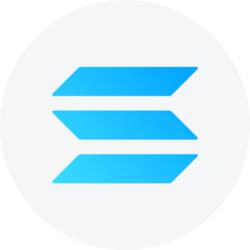
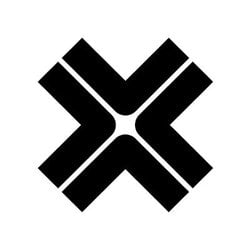
















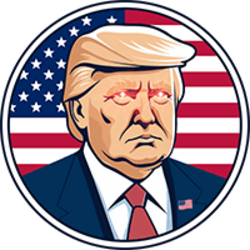





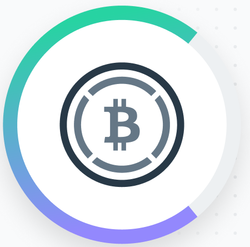








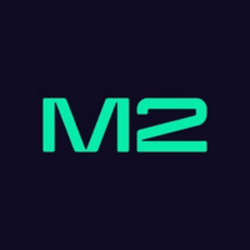









Be the first to comment